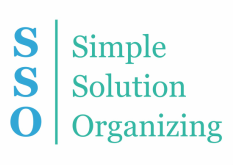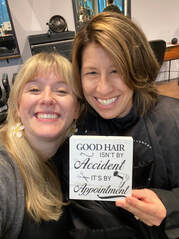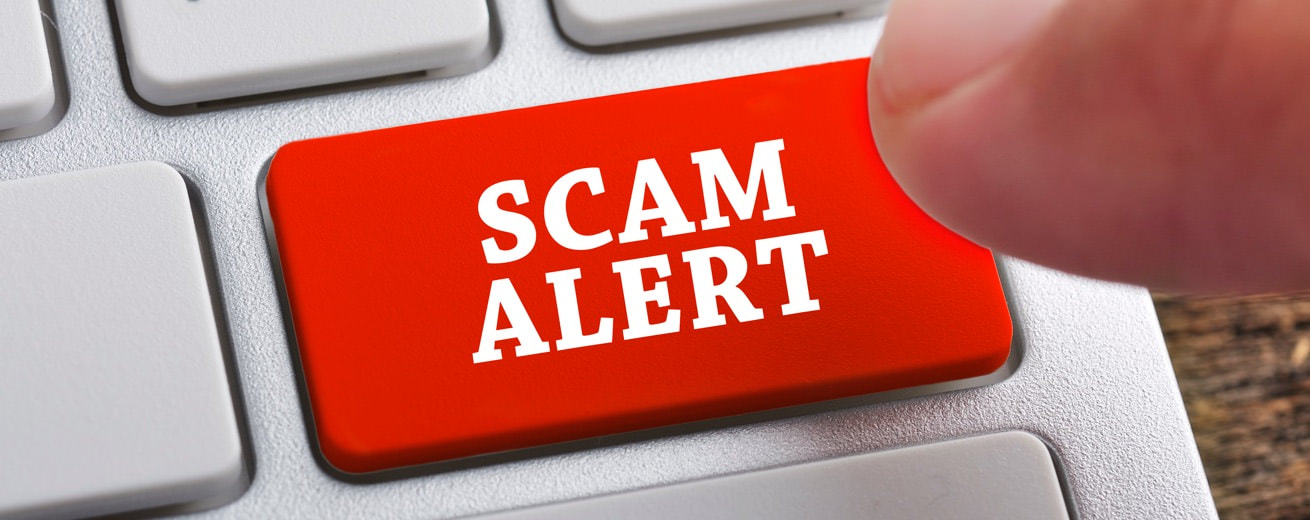|
Common Problem. Easy Fix.
The Problem of Too Many AccountsMany people who grew up during the depression era learned that it was not good to put all their eggs in one basket. The risk of losing the basket along with all their eggs was too high. This lesson applied to finances as well. Many individuals preferred to spread their money among a variety of different financial institutions because of their concern that a bank might fail and their funds would be lost. In 1934, the Federal Deposit Insurance Corporation or FDIC began insuring bank accounts to create better banking stability. In 1970, the US Government extended this protection to credit unions via the National Credit Union Administration or NCUA. In 2008, the limit of coverage through both the FDIC and NCUA was raised to $250,000. What we find when working with clients is that many people still have a depression era mentality. They keep money in multiple banks due to a misbegotten sense of security or indecision. Unfortunately, this can cause several unwanted outcomes:
A good financial advisor will diversify holdings within and across the accounts they manage. But if you have holdings scattered across several financial companies, you could be less diversified than you think. You may also have to ensure that your Required Minimum Distributions or RMD’s will be managed properly if there are multiple companies involved. This creates additional paperwork and extra work for your executor down the road. How to Reduce the WorkloadTo reduce the burden on yourself, and eventually on your loved ones, start taking steps to consolidate. By putting the pieces of the puzzle together, you can see the whole picture and gain back more of your valuable time.
Making the Process EasierIf closing accounts and transferring funds from one place to another seems like a daunting task, consider that Daily Money Managers assist their clients with these tasks regularly. Part of what we do is reduce financial stress. When age or disability make doing the things you need to do more challenging, it might be time to get help. Only you or your power of attorney agent can authorize account closings and direct the transfer of funds, As Daily Money Managers, we are accustomed to walking you through the process step-by-step, transparently, efficiently, and safely. Author: of this Article is Janis Harlow , Daily Money Manager. blog in AADMM
0 Comments
Vital Records Daily Money Management Services: In addition to monthly Bill Pay, Quicken and daily financial matters which is ongoing. We also offer help with projects such as our Emergency Planner document (all Vital Records Information in one place), tax preparation assistance, Quicken set up, and online bill pay set up. One example: We helped one client gather all of her important records before meeting with her Estate Attorney, to have a new Will drawn up. We also organize offices and help you set up file systems (paper and electronic) that will work for you. May / June 2024
The Role of a Digital Executor: Ensuring Your Digital Legacy Lives On In today's digital age, our lives are increasingly intertwined with technology. From social media profiles to online banking accounts, our digital footprint continues to expand. However, what happens to this digital legacy when we're no longer here? Enter the digital executor—a crucial role in modern estate planning. I recently took a seminar about protecting your Digital Legacy. Do you have a Digital Executor stated in your Will? According to The Digital Wrangler, Kate Hufnagel, you may want to consider adding one. FUFADAA, Revised Uniform Fiduciary Access to Digital Assets Act, is a law that provides the Executor of an Estate, or an attorney, with access to someone’s online accounts after death or incapacitation. Some states have enacted this law. I have designated my Legacy contacts on Facebook and Apple. Instagram does not offer it. I have not had success with Google or Linked in accounts yet. Dropbox has a legacy contact with a paid subscription. Some other great tips she gave us:
A digital executor is someone appointed to manage and oversee the digital assets and online presence of an individual after their passing. While traditional estate planning often focuses on tangible assets, such as property and finances, the digital executor ensures that your digital life is handled according to your wishes. The Importance of Digital Estate Planning In the absence of clear instructions, digital assets can become inaccessible or lost forever. Consider the sentimental value of cherished photos stored in the cloud or the financial implications of unredeemed cryptocurrency. Without proper planning, these assets may remain undiscovered or inaccessible, causing distress to loved ones. What Does a Digital Executor Do?
Selecting the right person to serve as your digital executor is crucial. Ideally, this individual should be tech-savvy, trustworthy, and capable of handling sensitive information. Communication is key—ensure that your digital executor understands your wishes and is prepared to fulfill their responsibilities. Conclusion In an increasingly digital world, planning for the management of our digital assets after death is essential. By appointing a digital executor and creating a comprehensive digital estate plan, you can ensure that your digital legacy lives on in accordance with your wishes. Take the time to inventory your digital assets, document your preferences, and choose a trusted individual to serve as your digital executor. Your foresight and planning will provide peace of mind for both you and your loved ones. How to set up Facebook & Apple Legacy Contacts Simple Solution Organizing can assist you in setting this up. Facebook: Memorialized profiles Memorialized profiles are a place for friends and family to gather and share memories after a person has passed away. Memorialized profiles have the following key features:
To add a Legacy Contact on your iPhone:
Adele Gross Chief Executive Organizer & Daily Money Manager 706-714-1314 Simple Solution Organizing LLC March 2024
We have been busy helping our clients with Payroll and prepping Tax Related items for their Accountants and CPA's. Are you struggling to get your Tax stuff together? Do you generally give your Accountant boxes of papers that may or may not be related to Taxes? We can help with that! 4 Proven Strategies to Lower Bills:
Happy New Year
Did you make Resolutions this year? Have you already broken them? That is the running joke about Resolutions. We tell ourselves, “I am going to lose weight, get fit, get organized, plan a trip, visit relatives, and fill in the blank”.Be realistic with your Resolutions and more importantly your goals. A better…less offensive word is Intentions. Create some intentions for yourself. I will share my intentions with you. Did you know that sharing your intentions, resolutions, and goals makes you more likely to achieve them? One of my intentions is to dance more. I took a Zumba class this morning. Another intention is to connect with friends, relatives, and travel more. My husband and I have a trip planned to Asheville in February and we will visit with one of my cousins on the way. Creating the intention and following through feels great. How about you? What do you want to add or subtract in 2024? What boundaries do you need to create or enforce in your life? Healthy boundaries at work and your personal life are crucial to everyone’s well-being. Resolutions,Intentions, Goals
Make 2024 a year where you say YES to life. Adele Tusson-Gross 706-714-1314 From the U.S. Department of Labor Blog: A New Year— A Great Time to Focus on Your Financial Future. Click the link to read. This blog post has very good information to review: the 3 stages of your work life Scams & Your Security
Can you imagine getting a call from someone impersonating a loved one saying they have been kidnapped or have been in a tragic accident? Then they ask you to send money to help them. That is exactly what Scammers are doing now. They impersonate and mimic your child or loved one’s voice. It is their voice! AI Technology makes it possible. My family has a code word; just in case someone tries to scam us. Security/Alarm system companies use a passcode to validate that you live at the residence where an alarm is going off. If you don’t know the code the Police are dispatched. You can also ask the Scammer an important detail that would not be common knowledge. It is always important to pause before doing anything rash with your money. I attended the 2023 American Association of Daily Money Managers conference in Chattanooga November 10 – 12th 2023. I learned a lot about scams from a Retired Police Officer that had worked in the Financial Exploitation department. It was so sad to listen to the horror stories he told us. The most upsetting exploitation story was about an Elderly Couple and their Grandson. The Grandson convinced his Grandparents to add him to the deed of their house. He eventually SOLD their home without their knowledge or consent. He arranged to pick up the Grandparents when prospective buyers were touring their home. The couple lost their California home AND their relationship with their Grandson. Social engineering scams: Text Messages becoming more prevalent According to Conversationally Security Blog post dated Oct. 4, 2023 Social engineering is when scammers use deception to obtain personal information from an individual and use it for fraudulent purposes. Test your security knowledge by taking Ally Bank’s quiz. Click the link above to discover the latest scams. Ally’s bank blog illustrates a provoking example: you have a family, your super busy, and you are making dinner. You get a text from your Utility company stating your payment is late. You are relieved that they are “so nice” to remind you. You click the link and give them your personal information. A few hours later you deeply regret it. Pause! Scammers catch us off guard and yes you don’t have to be in your 80’s or 90’s to fall victim to scammers. Have you ever received a Text from this biller before? Log in or call that provider directly. Never enter your information through a link. |
AuthorAdele Tusson-Gross Categories
All
|
Simple Solution Organizing LLC
Serving Athens and surrounding cities since 2003
706-714-1314 Cell
Please click here to send us an email







 RSS Feed
RSS Feed

